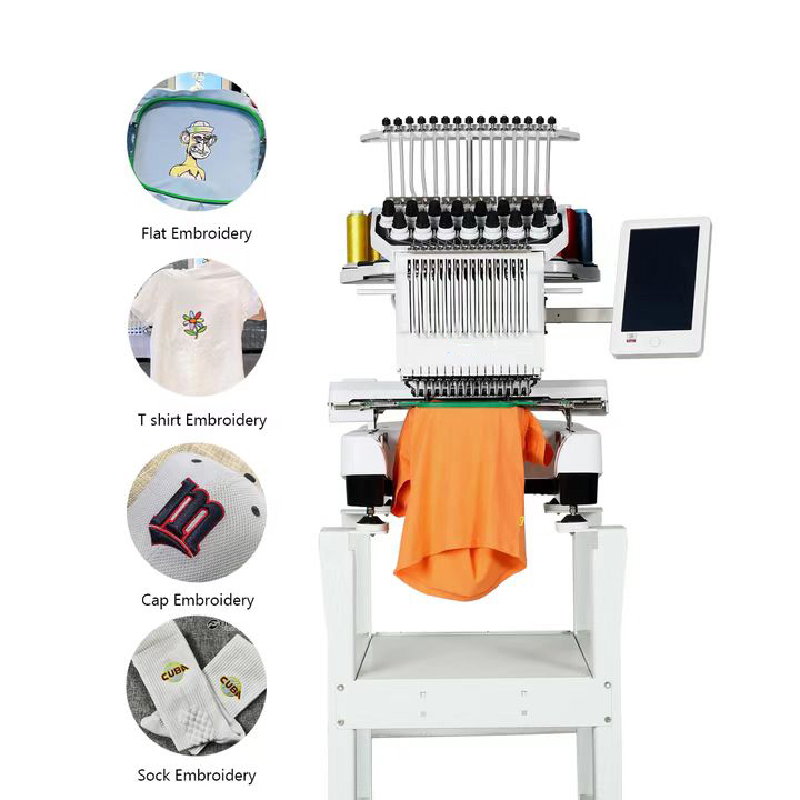10 月 . 21, 2024 10:17 Back to list
Advanced Solutions for Precision Embroidery Machines in Industrial Production
The Evolution and Importance of Industrial Embroidery Machines
In the realm of textile and garment production, industrial embroidery machines play a pivotal role in optimizing productivity and creativity. These sophisticated devices have advanced significantly over the years, integrating cutting-edge technology that allows them to execute intricate designs with remarkable precision and efficiency. This article delves into the evolution, functionality, and importance of industrial embroidery machines in modern manufacturing.
The Evolution of Industrial Embroidery Machines
The history of embroidery machines dates back to the early 19th century when the first hand-operated machines were invented. These primitive machines laid the groundwork for what would eventually develop into today’s advanced industrial versions. The introduction of electric machines in the 20th century revolutionized the industry, allowing for faster production speeds and more complex designs.
As technology progressed, the late 20th century brought digital embroidery machines equipped with computer-controlled systems. These machines could store thousands of designs, enabling quick and easy retrieval and customization. This transition not only increased production efficiency but also expanded the creative possibilities for designers. Today, we witness a dynamic landscape where high-speed multi-needle machines can embroider multiple colors, textures, and patterns in one seamless pass, significantly reducing turnaround times.
Key Features of Industrial Embroidery Machines
Modern industrial embroidery machines boast a plethora of features that cater to the diverse needs of manufacturers. Some of the most salient characteristics include
1. Speed and Efficiency Contemporary machines can operate at speeds exceeding 1,000 stitches per minute, dramatically enhancing productivity compared to traditional methods. This efficiency is crucial in meeting the high demand for embroidered textiles in various sectors.
2. Multi-Needle Capability Many industrial embroidery machines are equipped with multiple needles, allowing for simultaneous use of different thread colors. This feature facilitates the creation of complex, multi-colored designs without the need for constant thread changes.
3. Computerized Control Systems Digital embroidery machines are equipped with advanced software that enables the precise placement of designs on fabrics. Operators can easily customize designs, modify sizes, and make adjustments on-the-fly, which is essential for maintaining quality and meeting specific client requirements.
industrial embroidery machine

4. Large Embroidery Fields Industrial embroidery machines often feature expansive embroidery fields, accommodating larger designs. This capability is particularly beneficial for businesses looking to create large-scale artwork on garments, banners, or promotional materials.
5. User-Friendly Interfaces Many machines come with intuitive touch screens that simplify operation and design selection, reducing the learning curve for new operators and enhancing overall production efficiency.
Importance of Industrial Embroidery Machines in Manufacturing
The significance of industrial embroidery machines cannot be overstated. They are integral to various industries, including fashion, sportswear, gift items, and promotional merchandise, among others. Here are some key reasons why they are indispensable in manufacturing
1. Quality and Consistency Industrial embroidery machines ensure high-quality output with consistent results across multiple pieces. This uniformity is vital for businesses that strive to maintain brand integrity and satisfy customer expectations.
2. Cost-Effectiveness While the initial investment in advanced embroidery machines can be substantial, the long-term cost savings are significant. Increased production speeds lead to lower labor costs, while the ability to produce high volumes reduces the cost per unit, making it economically viable for manufacturers.
3. Design Versatility The capability to create intricate designs opens up new avenues for creativity and differentiation in the marketplace. Businesses can offer customization options that enhance customer engagement and satisfaction, fostering brand loyalty.
4. Adaptability to Market Trends The fashion and manufacturing industries are constantly evolving, with trends changing rapidly. Industrial embroidery machines allow manufacturers to pivot quickly to meet demands for new designs and styles, ensuring they remain competitive in a fast-paced market.
Conclusion
In conclusion, industrial embroidery machines are essential tools in the modern textile and garment production landscape. Their evolution from simple hand-operated devices to advanced digital systems reflects the technological advancements in manufacturing. As businesses continue to prioritize quality, efficiency, and creative expression, the role of industrial embroidery machines will become increasingly prominent, shaping the future of the industry. Embracing these innovations not only enhances productivity but also fosters a culture of creativity that is vital for success in today’s competitive marketplace.
-
Professional Embroidery Machines High-Speed Industrial Solutions & Custom Designs
NewsMay.30,2025
-
Premium 2-Head Embroidery Machines Reliable Manufacturers & Suppliers
NewsMay.30,2025
-
12 Head Embroidery Machines High-Speed & Precision Stitching
NewsMay.30,2025
-
Premium Tshirt Embroidery Machines High-Speed & Precision Stitching
NewsMay.29,2025
-
6 Head Embroidery Machines High-Speed Multi-Head Designs & Suppliers
NewsMay.29,2025
-
Commercial Automatic 2 Heads Embroidery Machine Caps and shirts 12 15 Needles Two Heads Computerized Embroidery Machine
NewsMar.07,2025

Copyright © 2025 Xingtai Pufa Trading Co., Ltd All Rights Reserved. Sitemap | Privacy Policy
